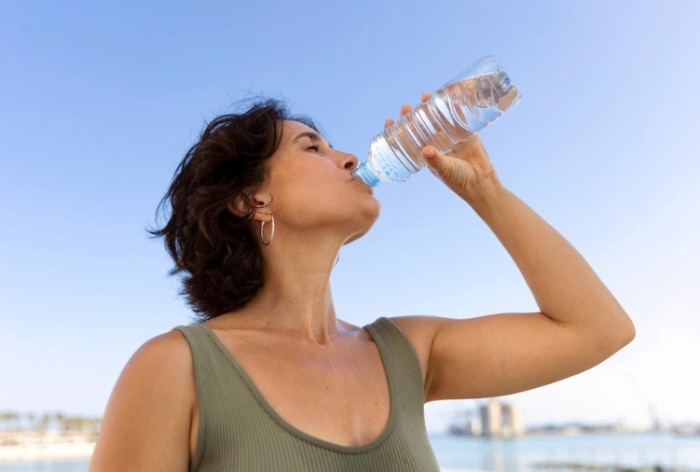We all have heard that it is essential to stay hydrated, but never knew that too much of water can also disrupt our body and cause water intoxication. Here are unaware signs of overhydration in the body.

Water is a necessity for our body as it keeps running the entire system smoothly. However, drinking water in excess may have disadvantages as it can upset the balance of electrolytes in the body. Now, you might be wondering, how much water should I drink every day? You’ve probably heard the advice to drink eight glasses a day, which is a good starting point. But it’s not the same for everyone.
What is Water Intoxication?
Water Intoxication, also known as water poisoning, is a condition that occurs when you drink an excessive amount of water in a short period. It affects the volume of water in the bloodstream that can dilute sodium in your blood. Sodium is essential in maintaining the fluid balance inside and outside of your body’s cells. When the levels fall due to excessive water, fluids flow from the exterior to the inside of cells, affecting the swelling of the brain and cause life-threatening consequences.
Signs And Symptoms of Water Intoxication/Overhydration
Here are certain signs and symptoms of water intoxication-
- Nausea and Vomiting: The person may start feeling dizzy and a sensation of nausea
- Headaches: Reduced sodium levels in blood can lead to discomfort, headaches and distress
- Confusion and disorientation: Overhydration can result in confusion, disorientation and in few cases, seizures
- Swelling: Excessive water intake can cause swelling in various parts of the body, including hands, feet and ankles
- Muscle Cramps: Low sodium levels can cause muscle cramps and weakness
- Fatigue: Overhydration can make you feel drained and cause fatigue, lethargy.
Conclusion
To avoid overhydrating, try to drink no more than about 8-9 cups of fluids per day. If you have a medical condition such as diabetes, CHF, or kidney disease, talk with your doctor about the best treatments. Ensure you drink water, depending upon various factors like your body weight, climate and activity levels. Also, if you don’t feel unusually thirsty, talk with your doctor about the best treatments.
